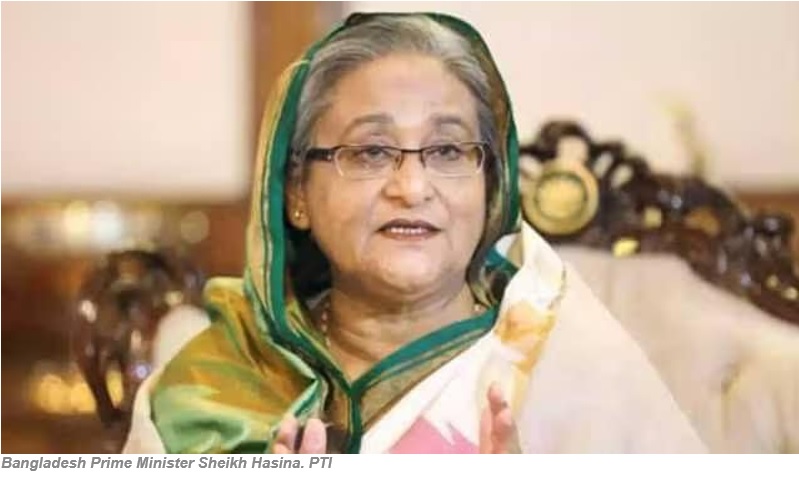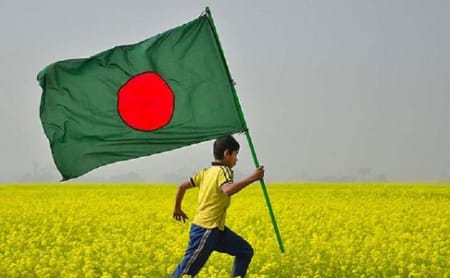The return of the anti-liberationists would be detrimental to India’s security, especially in the North East
Jaideep Saikia Last Updated: August 25, 2023.
The writer is a conflict theorist and bestselling author. The views expressed are his own. Views expressed in the above piece are personal and solely that of the author.
First Published in Firstpost, August 25, 2023.

Bangladesh goes to the polls in January 2024. The elections are crucial for not only the erstwhile East Pakistan, but India as well. It is important that the secular forces remain in power and not pave way to the barrack politics backed by radical Islam. Such a prognosis makes sense when the geopolitics of the region is taken into account. The return of the anti-liberationist forces of 1971 would sound the death knell to Bengali nationalism that had characterised the triumph of culture over religion.
The Indian stand has always been to support the secular forces in Bangladesh. After all, India ably aided the liberation of Bangladesh. It must also be said that the secular half of Bangladesh is pro-India and it stands to reason that Sheikh Hasina—who leads the secular constituency—would be supported by India.
Furthermore, the return of the anti-liberationists would be detrimental to India’s security, especially in the North East. Memories of Indian insurgent groups such as the United Liberation Force of Asom and the National Democratic Front of Bodoland billeting themselves in Bangladesh and hitting out at Indian interest with impunity are still fresh. But the manner in which Hasina handed over almost the entire leadership of the belligerent groupings when she came to power merited appreciation. While it is true that certain Islamist outfits have also entered Assam and thereabouts in recent times, the fact of the matter is the continuance of Hasina is vital for India. Under the circumstances, New Delhi has to ascertain Hasina’s return.
On the other hand, observers of South Asian geopolitics have commented about the manner in which the US is showing interest in the upcoming Bangladesh elections. Congressmen from the US have visited Dhaka and there was a visitation by the US state office’s coordinator on global anti-corruption. It has also been reported that the director of the US Indo-Pacific Command will be visiting Bangladesh in August.
Although there has always been interest in Bangladesh by the US even before its inception in 1971, the concentration of foci of the present calls for analysis. This is especially so as there is speculation that the US is intending a “regime change” that would suit its geopolitics in the region. As a matter of fact, Bangladesh Prime Minister, Sheikh Hasina has herself voiced concern stating that “Washington is working to bring an undemocratic party to power in Bangladesh in the upcoming election”.
The history that pertains to US-Bangladesh relationship, especially after the latter’s liberation is mired in high-grade subterfuge. Indeed, one has to only peruse the celebrated book “The Blood Telegram” by Gary J Bass in order to catch the manner in which the US turned a blind eye to the conspiracy that led to the assassination of Sheikh Mujibur Rahman. Bass has documented the manner in which Archer Blood, the US Consul General in the early 1970s, sought to cable Washington about the genocide that was being committed in the “East” by Pakistan. Bass also writes about how the 1975 putsch and the massacre of the Bangabandhu’s family was shelved by the Nixon-Kissinger duo.
It is no longer a matter of debate that the US openly supported Pakistan in 1971. The renewed US interest in the erstwhile East Pakistan clearly showcases that the US wants the Bangladesh Nationalist Party (perhaps backed by Islamist radical elements) to win. This is “global policing” at its worst.
But it is also true that there are two Bangladeshs. A pre-1971 grouping continues to be loyal to the founding principles of Bangladesh. However, there has been an emergence of a new formation which is largely from the post 1971 era. This assemblage identifies itself with Pakistan and even the global Salafi movement that is attempting to storm troop across the world. But Sheikh Hasina’s dispensation acted swiftly against the anti-liberationists and executed quite a few of them.
However, recent events have witnessed a somewhat changed Bangladesh with not only a section of its population once again raising its ugly head by way of attempting to identify itself with Pakistan and the global salafi movement that the world has been witnessing, but with even a section within the Awami League seeking to tilt the balance in favour of anti-India powers.
It is in this context that J N Dixit’s prophetic words about maintaining “a certain amount of distance from India” by balancing Bangladesh’s polity by reaching out to anti-India forces such as China and Pakistan might be viewed.
It must be understood that there is no political opposition to Sheikh Hasina inside the Jatiya Sangsad with the main opposition political party Bangladesh Nationalist Party having only seven seats as opposed to the overwhelming 302 that the Awami League has. While the huge majority that her party has in the parliament has made Sheikh Hasina the “unquestioned leader” in the mould of her father, Sheikh Mujib-ur-Rahman who was assassinated on 15 August 1975, there is apprehension that all may not turn out to be well post January 2024 and the next Bangladesh polls.
It must also be understood that Hasina may be under pressure—as aforesaid—from “Closet Chinese” within the Awami League. Empowering her and the leadership that would take over the reins after her exit should be uppermost in the minds of security managers in New Delhi. India cannot afford the construction of a Chinese “string of pearls” around her neck nor a 1975-like scenario when it lost all ground to anti-liberationist forces that Indian soldiers had fought for and alongside the Mukti Bahini.
In any event, analyses has it that the January 2024 elections would primarily be contested on the plank of (a) development (b) health and (c) Sheikh Hasina’s ability to reach out to secular Bangladesh including the Hindu, Christian and Buddhist populations and assure them that the Awami League would protect their interest. The minorities of Bangladesh have never wavered from their loyalty to Hasina.
Proximity to India, on the other hand, has not gone down well with Pro-Pakistan elements, and there is apprehension that the Inter Services Intelligence of Pakistan would not only be funding such a constituency, but actually help rally political parties such as the Bangladesh Nationalist Party and Hifazat Andolan Bangladesh to fight Sheikh Hasina as one.
Not long ago the International Republic Institute published a study that showcased Bangladesh’s economic, political and societal dynamics. The research underscored the fact that although the Bangladesh citizenry has been unenthusiastic about the state of the economy and elections, the Awami League government’s policies on development have shored up considerable support for Sheikh Hasina. Health continues to be an important plank where observers feel that more needs to be done, especially as disease such as Dengue needs to be battled with greater resolve.
The security managers in New Delhi—it is certain—have made a careful study of the politics of Bangladesh and the manner in which extra-regional power play may affect the poll outcome. However confidence must not pave way to complacence. India aided the formation of Bangladesh in 1971. It was a decisive victory and Pakistan (and even the US which had sought to help Pakistan) was made to eat humble pie by a determined India. But it has also to be remembered that five years later—in 1975—both secular Bangladesh and India lost ground that they had achieved.
Bangladesh goes to polls five months from now. It is important that no stone is left unturned to ensure that Sheikh Hasina continues to be in the seat of power. Inability to do so would only be at India’s peril.

